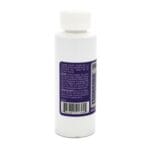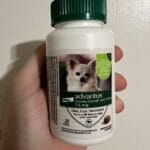Roaches are a common household pest, but boric acid offers a safe, effective, and affordable solution. This comprehensive guide provides step-by-step instructions for using boric acid powder to eliminate roaches and prevent future infestations.
Understanding Boric Acid: A Roach’s Nemesis
Boric acid is a natural insecticide that works as both a stomach poison and a desiccant. When roaches ingest it during grooming, it disrupts their digestive system. Simultaneously, its desiccant properties dehydrate them, leading to their demise, usually within 72 hours. While effective against roaches, boric acid is generally considered safe for humans and pets when used correctly. However, “safe” doesn’t equate to “harmless.” Responsible handling is crucial, much like using a kitchen knife—a useful tool that can be dangerous if misused. This guide prioritizes safety alongside effectiveness.
Gearing Up: Safety First!
Before you begin, prioritize safety. Boric acid, while low in toxicity to humans, requires careful handling, especially around children and pets. Concerned about potential reactions after your pup’s shot? Discover the common bordetella vaccine side effects in dogs and ensure your furry friend’s well-being.
- Gloves: Always wear gloves when handling boric acid to prevent skin irritation.
- Mask (Optional): While not strictly necessary for small-scale applications, a mask can minimize dust inhalation, which may irritate the lungs.
- Storage: Store boric acid out of reach of children and pets, preferably in a locked cabinet, clearly labeled.
- Ventilation: Ensure good ventilation during application, especially in confined spaces.
Preparing for Battle: Application Strategies
The key to effective boric acid application lies in strategic placement. Think like a roach: dark, damp, and hidden. These are the areas you want to target.
Dusting: Creating Invisible Traps
Apply a thin, even layer of boric acid powder—think dusting for fingerprints, not creating mounds. Roaches are surprisingly adept at avoiding obstacles, and a thick layer may deter them. Focus on these key areas:
- Kitchen and Bathroom Hotspots: Under sinks, around pipes, inside and under cabinets, and any cracks or crevices.
- Appliance Hideouts: Behind and beneath refrigerators, stoves, dishwashers, and where pipes connect.
- Perimeter Patrol: Along baseboards, wall corners, and behind furniture—roach highways.
- Hidden Havens: Pantries (away from food), storage closets, and other undisturbed areas.
A puffer applicator helps achieve a precise dusting, minimizing airborne particles and targeting those hard-to-reach spots.
Bait Stations: The Trojan Horse Tactic
Boost boric acid’s effectiveness with bait stations. Mix a small amount of boric acid with an attractant (peanut butter, cocoa powder, or sugary syrup) and place these strategically in areas of roach activity. Caution: Keep bait stations out of reach of children and pets. Thinking of becoming an egg donor but unsure if you qualify? Uncover the potential egg donation disqualifiers and see if you meet the criteria.
Maximizing Impact: Combining Methods
For a comprehensive approach, combine boric acid with commercial roach bait products like Advion Syngenta Gel Bait. The bait acts as an attractant, drawing roaches in to consume the boric acid. This integrated pest management strategy often yields the best results, according to some experts.
Maintaining the Upper Hand: Long-Term Roach Control
Boric acid provides residual control, but maintaining a roach-free environment requires ongoing effort.
- Regular Cleaning: Vacuum and clean frequently, eliminating food sources and crumbs.
- Seal Entry Points: Caulk cracks and crevices to prevent roaches from entering.
- Moisture Control: Address any leaks or damp areas, making your home less appealing to roaches.
Boric Acid vs. Borax: Clearing the Confusion
Boric acid and borax are often confused, but they are not the same. Boric acid is the refined, more potent form specifically designed for pest control. Borax, while containing boric acid, is less concentrated and less effective against roaches. For roach control, boric acid is the clear winner.
The Science Behind the Solution: How Boric Acid Works
Boric acid works through a two-pronged attack:
- Digestive Disruption: Ingested boric acid disrupts the roach’s digestive system, preventing it from processing food and absorbing nutrients.
- Fatal Dehydration: Boric acid’s desiccant properties dehydrate the roach, further contributing to its demise. This dual-action approach makes boric acid a highly effective cockroach control method.
Roach Resistance: Staying Ahead
While less common with boric acid than with other insecticides, the possibility of resistance development exists. Rotating control methods, consulting a pest control professional, and staying informed about ongoing research can help mitigate this risk.
Conclusion: Winning the Roach War
Boric acid, when used strategically and safely, is a powerful tool for eliminating roaches. By following the guidelines in this comprehensive guide, you can reclaim your home and enjoy a pest-free environment. Remember, consistent application and preventative measures are key to long-term success.
- Unveiling Bernhard Caesar Einstein’s Scientific Achievements: A Legacy in Engineering - July 15, 2025
- Uncover who is Jerry McSorley: CEO, Family Man, Business Success Story - July 15, 2025
- Discover Bernhard Caesar Einstein’s Scientific Contributions: Unveiling a Legacy Beyond Einstein - July 15, 2025















2 thoughts on “Effective Roach Control: Using Boric Acid Powder to Eliminate Roaches”
Comments are closed.